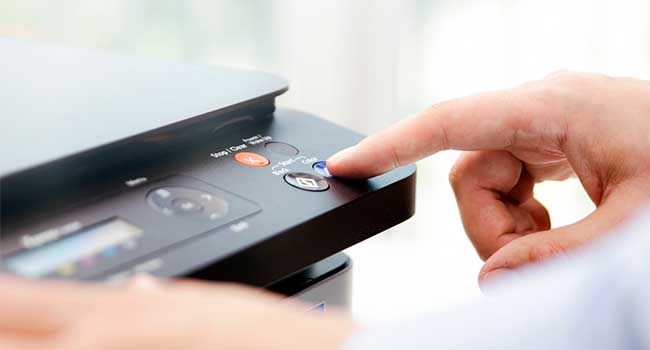
There is No Such Thing as Printer Security and Privacy
When you print, scan, or copy anything at home or in the office, the data on the printed page makes it possible to track both you and your documents.
When you print, scan, or copy anything at home or in the office, the data on the printed page makes it possible to track both you and your documents.
In attempts to make their products easy to use, and with government backdoor demands to adhere, printer manufacturers have compromised on security and privacy. And it's not just what you print that can be used against you—the printer itself maintains hidden logs that anyone with a Wi-Fi connection could access!
Wireless printer networks are a security nightmare
Many printers broadcast an unsecure Wi-Fi network so that you don’t have to worry about cables, and can even print from your mobile devices.
If an attacker or interested third-party wanted, they could configure your printer to forward data to themselves, including everything you scan or print.
Printer logs reveal who printed what, and when they did it
All printers keep internal records of all the data that is printed or scanned on it, and at what time. This will most likely include the file name, a timestamp, and the IP address from where the request came. In some cases, however, it will also include a full copy of the printed and/or scanned documents.
This data is stored on a dedicated hard disk within the printer, and the larger your printer, the more likely it has a large storage space. Office printers almost certainly make copies of all the documents they print and scan.
If you decide to sell your printer (or if the office you work in sells theirs), stored data becomes a serious privacy concern. It's extremely important to know how to wipe a printer's hard disk before you sell it. If the data on the printer is sensitive, it could become a problem for you if it falls into the hands of criminals or the state.
Printer hard disks and logs should regularly be wiped, but, depending on the model, this might be difficult. If in doubt, do not use a printer to record private information, such as Bitcoin private keys, company secrets, or secret data.
If you have no access to a printer’s hard drive, you should never use it to print anything even slightly risque or private.
Your printer secretly marks every document
Every modern printer will leave tiny dots on all paper that goes through it. The dots are barely visible but perfectly identify the printer by its serial number.
The dots were implemented at the insistence of governments, to combat fears of counterfeit money. Usually, these identifiers take the form of tiny dots which are littered around the page and will allow authorities to see which printer created a document and where the printer was bought. In theory, they could then trace it back to you via CCTV footage or payment records.
Even without CCTV footage or payment records though, it might still be possible to link a printed or photocopied document to a printer or a person from the stored printer logs on the hard disk.
It’s quite difficult to protect against printer identifiers, as reprogramming the device might be impossible or extremely difficult. But purchasing a used printer from a used good store might hinder any search enough to stop them physically locating you.
If you have Bitcoin, throw away your printer
If you keep Bitcoin, you should never print any of your wallet information. Ever.
Printers could theoretically contain malware that will scan documents for information such as Bitcoin private keys or recovery codes.
Though there have been no reported cases yet, as Bitcoin becomes more prominent the production printer malware is undoubtedly only a matter of time away. Modern printers can connect to the internet and do not get the same security attention as computers do (especially in regards to updates) and thus represent an easy target to anyone so inclined.
If you want to backup a Bitcoin wallet, it’s much better to write the backup phrases by hand and keep them in a secure place.
When in doubt, pen and paper is best
Printers are a terrible choice if you wish to maintain your privacy. If you want to remain anonymous, the only sensible recommendation is to avoid printers altogether.
They might be archaic, but for the best security, a pen and paper might still be the best option (or a typewriter if you’re feeling fancy). Just make sure you don't write anything down near a CCTV camera or drone.